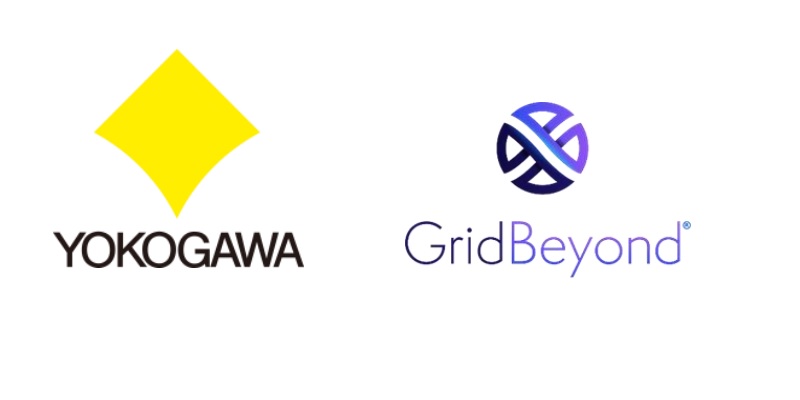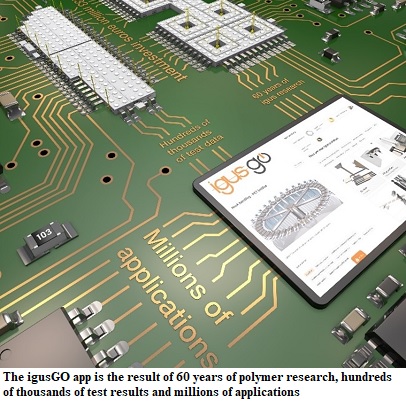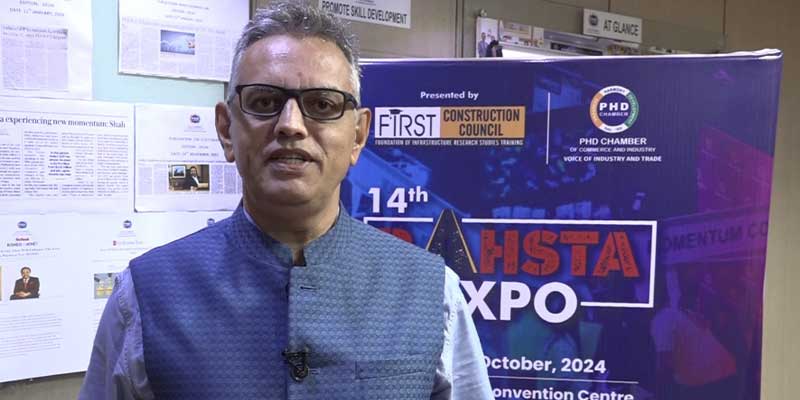Schedule a Call Back
Schneider Electric India highlights importance of ICT for Smart Cities
 Industry News
Industry News- Nov 26,14
New Delhi, 26 November 2014: Schneider Electric India - the global energy management specialist and leader in energy efficiency - cited a November 2014 India Infrastructure Research report titled, 'ICT in Urban Governance - Survey', to take real-time stock of ICT adoption in various cities, its importance as perceived by city administrations and as reflected in allocated budgets and actual spends. If the NDA Government's vision of 100 Smart Cities is to become a reality, the relevant data will be invaluable for Central and State Governments. Schneider Electric believes ICT deployment is crucial to convert existing cities into Smart Cities.
From hundreds of eligible cities, the first most likely 53 have been surveyed initially out of the 100 brownfield cities that would be on the Government's agenda for conversion into Smart Cities. The report said the scope and scale for ICT varies across cities, depending upon their size, needs, financial resources and approach to ICT by the city's top management, which included Municipal Commissioners and IT heads. Presently, most civic agencies have implemented IT modules in E-governance.
Elaborating on the highlights of the 'ICT in Urban Governance - Survey' report by India Infrastructure Research, Mr. Anil Chaudhry, President and Country Head, Schneider Electric India, said: "The major benefits from ICT adoption would be efficiency and transparency, with about 94% of civic agencies mentioning this. Around 84% of survey respondents believe costs savings and promoting citizen participation would be the other benefits. Moreover, ease of monitoring, better accessibility and standardisation of services are cited as additional benefits by 78%, 74% and 71%, respectively."
Presently, about 80% civic agencies allocate less than 1% of their budgets to ICT. A majority expect less than 10% increase in IT budgets over the next two years, leaving immense scope for expansion. Ironically, although 90% of civic agencies believe ICT will ensure tremendous benefits in terms of transparency and accountability, actual allocations are less than 1-5%, with many states spending much less than the allocated amounts. The majority of civic agencies allocate between 0.5% and 1%, while another 40% allocate less than 0.5% of municipal revenues for ICT expenditure. Only 12% of respondent civic agencies have ICT budget allocations in the range of 1% to 1.5%. Conversely, about 2% allocate more than 5% of their budgets towards ICT.
But only 28% have adopted electronic services for smart water and waste management. Amongst core services, water and sewage management systems have been adopted by more than 30%. SCADA (supervisory control and data acquisition) is the most preferred smart grid solution, deployed by more than 40%. Around 60% of cities have either implemented or are considering SCADA and rooftop solar integration.
While 65% of civic agencies have implemented online property tax solutions, from the remainder, about 96% will offer this by 2016. Online bill generation has been implemented or is under implementation by more than 70%. In the case of town planning, there is only limited ICT penetration. But building plan approval and trade licence solutions have been adopted by more than 70%. The other modules implemented include: building completion certificate (57%), spatial planning (43%), allotment of housing/shops (32%) and land development and road widening (30%).
Although most services are managed in-house, outsourcing is fast becoming popular. Citizen services, accounting and revenue management, administrative functions and e-governance are largely managed in-house, while GIS and smarter transportation areas are usually outsourced. The most common solution adopted by more than 85% was E-tendering. Also, more than 75% of cities have ICT-enabled services that benefit citizens, such as issue of birth and death certificates, customer grievance redressal and establishment of civic centres/e-seva kendras.
GPS-based vehicle tracking has been adopted by more than 65%. Intelligent street lighting facilities have either been implemented or are under implementation by more than 40% of civic agencies. Passenger information system, intelligent traffic management, automated fare system and video surveillance facilities have been implemented or are under implementation by more than 25%.
It is clear the major demand for ICT solutions will arise from the creation of smart grids and smart public services. Top ICT solutions to be implemented in future will be: integrated healthcare; GPS-enabled handsets for grid inspection; GPS-based load management and outage management; education management; street light management; water management; passenger information systems; rooftop solar integration; GPS-based billing; and power quality monitoring.
The report however says capacity constraints and integration of legacy data are major challenges in ICT implementation. Limited capacity at the city level was one of the biggest management concerns, as per about 70% of civic agencies. Other major hurdles are lack of technical knowhow and change management, while some cities say coordination among various departments and delay in administrative approvals would be a challenge. Low IT outlays, lack of customisation, limited IT personnel as well as lack of administrative and political will, would be the other challenges.
Concluded Mr Anil Chaudhry, President and Country Head, Schneider Electric India: "Successful implementation by other cities should, however, inspire the laggards to opt for faster adoption of ICT solutions, which will play a key role in existing cities as well as in creating greenfield Smart Cities. Furthermore, such solutions could be dovetailed with the Central Government's other programmes such as the 'Swachh Bharat Abhiyan' or Clean India campaign, since survey statistics reveal only 28% civic agencies have adopted smart water and waste management techniques. In this context, it needs to be mentioned that global energy management specialists such as Schneider Electric are well positioned to bridge the deficit between the vision and ground reality of creating 100 Smart Cities as the Company has already implemented similar solutions in other geographies. The help of Smart City specialists could play a key role in ensuring ICT and IT outlays are used judiciously and not left unspent."
Related Products
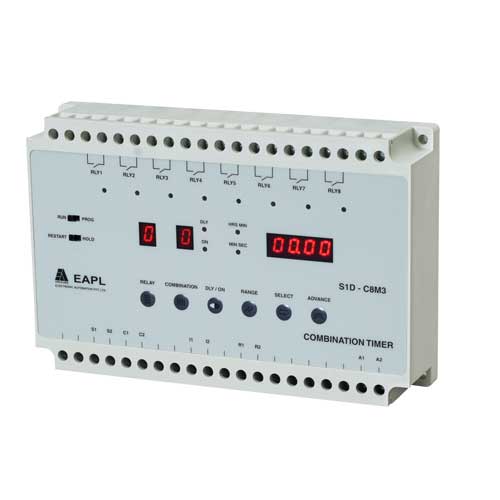
Combination Timers
Electronic Automation Pvt Ltd offers a wide range of combination timers.
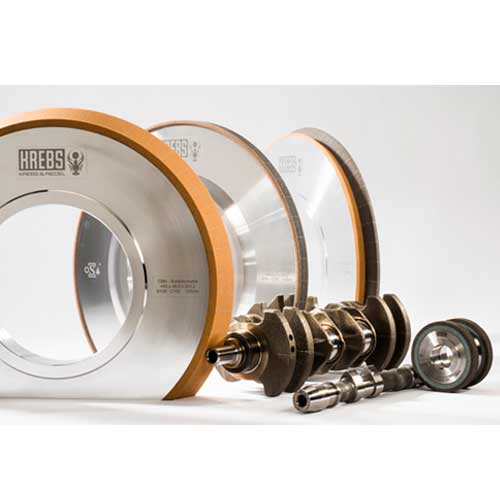
Cbn and Diamond Tools
Krebs & Riedel Abrasives India Pvt Ltd offers a wide
range of CBN and diamond tools.
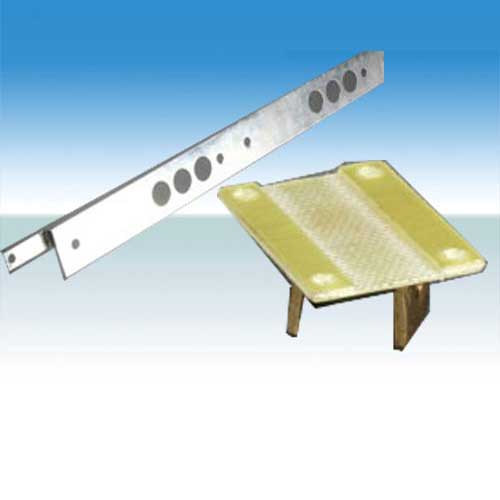
Connectors
G R Enterprises offers a wide range of connectors.




